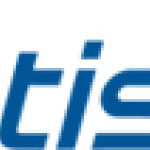- Branche: Telecommunications
- Number of terms: 29235
- Number of blossaries: 0
- Company Profile:
ATIS is the leading technical planning and standards development organization committed to the rapid development of global, market-driven standards for the information, entertainment and communications industry.
A circular orbit in the equatorial plane, any point on which revolves about the Earth in the same direction and with the same period as the Earth's rotation. Note: An object in a geostationary orbit will remain directly above a fixed point on the equator at a distance of approximately 42,164 km from the center of the Earth, i.e., approximately 35,786 km above mean sea level. Classification Orbital Altitude (km above the earth) LEO 500-2,000 MEO 8,000-20,000 Geostationary Orbit 35,786
Industry:Telecommunications
A circular orbit in the equatorial plane, any point on which revolves about the Earth in the same direction and with the same period as the Earth's rotation. Note: An object in a geostationary orbit will remain directly above a fixed point on the equator at a distance of approximately 42,164 km from the center of the Earth, i.e., approximately 35,786 km above mean sea level. Classification Orbital Altitude (km above the earth) LEO 500-2,000 MEO 8,000-20,000 Geostationary Orbit 35,786
Industry:Telecommunications
A civil international organization established to promote standardized telecommunications on a worldwide basis. Note: The ITU-R and ITU-T are committees under the ITU. The ITU headquarters is located in Geneva, Switzerland. While older than the United Nations, it is recognized by the U. N. As the specialized agency for telecommunications.
Industry:Telecommunications
A class of service in which users may be denied access to one or more of the system features or operating levels.
Industry:Telecommunications
A class of system containing information with different sensitivities that simultaneously permits access by users with different security clearances and needs-to-know, but prevents users obtaining access to information for which they lack authorization.
Industry:Telecommunications
A class of tributary office which does not have direct access to its toll center, but which is connected to its toll center office by means of circuits which are switched through to the toll center at another tributary office.
Industry:Telecommunications
A class to which a user, such as a person, program, process, or equipment, of a system may be assigned, based on the resources each user is authorized to use.
Industry:Telecommunications
A client-centric computing model where software must be installed on each client in a network. This often requires that each client computer be upgraded to the same level.
Industry:Telecommunications
